Last month, a 16-year-old girl was left temporarily paralysed after she was humiliated by judges on a dance-based reality show on a Bengali channel.
It may make for great viewing and after-dinner conversation, but it is also becoming a gladiatorial sport
Reality TV shows are in the news for all the wrong reasons these days. Last month, a 16-year-old girl was left temporarily paralysed after she was humiliated by judges on a dance-based reality show on a Bengali channel. Shinjini Sengupta couldn't take the public chiding for her lacklustre performance and went into depression.
The country was still coming to terms with the incident when reality TV claimed its second victim. Anjar Khan, 22, almost drowned while participating in a show in Indore, Madhya Pradesh, where contestants had to stay under water for as long as possible. Khan had to be rushed to hospital and put on a ventilator.
The battle for eyeballs and TRPs has seen reality shows undergo a sea change: spats among judges have become the norm; participants are subjected to snide remarks and harsh criticism. The pressure on the shows to perform with audiences is having a debilitating effect on those who participate in them. The participants are not only made to undergo massive makeovers to look more glamorous, but they also have to deal with tremendous emotional and psychological pressures.
"This industry is a tough place to survive," says Dharmesh Jatania, who participated in dance reality show Yeh Hai Jalwa as a member of Hussain Kuwajerwala's team. "The judges can be very rude and this can have a very negative impact on a participant's bearing."
Jatania says the pressure to perform can be unnerving at times and cause depression and anxiety among contestants. "It is surprising that most of these shows do not have counsellors on the sets despite the high stress levels," he says. "Before participating in a reality show, contestants have to sign a contract with the channel, which spells out all the legal obligations." The contract, he says, does not mention anything in case a participant suffers intense mental trauma during the show.
But production houses insist there is no need for a counsellor. Deepika Bagraria, operations assistant at Sai Baba Telefilms, which is producing the singing-based reality show Voice of India, says, "We have a mutual and human understanding with all our participants. That is why we don't need a counsellor."
Bagraria says the production house takes care of the emotional needs of the participants. "If we notice that a contestant has become depressed, we talk to him/her," she says. "We also encourage family members to come for the shoots to boost the morale of their child."
In this age of cut-throat competition, reality shows are going all out to provide fodder to the Indian spectator's insatiable need for emotion. It is not unusual to see contestants break down into a bout of hysterical crying. The more the drama, the better the TRPs.
But all this is driving participants over the edge, most of whom are not at all happy about their emotional exploitation. "Channels are unabashedly playing with the emotions of the participants to increase their TRPs," says Jatania. Channels need to understand that people come here with a dream, he says. "It won't harm the judges to be a little soft-spoken when a participant fails to deliver a good performance," he says.
Singer Ila Arun, who is judging the singing-based reality show Junoon, agrees with Jatania. "There is no need for a judge to be rude," she says. She says judges must first win the trust of a participant. This, she says, will help them and the participants to accept criticism.
Ila agrees that reality shows are a boon for the go-getter generation of today. "These shows give contestants a platform to showcase their talents." But it is the responsibility of the parents to make children understand that a reality show alone cannot decide their fate. "After all, it is just a competition." She says parents can play the role of counsellor and help children overcome depression and mental agony.
A plot gone awry?
Things weren't this tough when reality TV shows made their foray into our living rooms. At a time when mundane saas-bahu sagas had squeezed all emotions out of Indian audiences, reality shows offered a refreshing form of entertainment that wasn't spun around treacherous power play among members of an affluent household.
The reality TV craze hit India when Channel [V] launched a hunt for five singers for a pop band. Scores of youngsters thronged studios in the hope of making it big. The contestants were joined by audiences who cried when their favourite participants failed, and celebrated when they triumphed.
With the mushrooming of TV channels, reality shows graduated from being weekend phenomena to daily fixtures. With audience votes pouring in by the millions, channels scrambled to come up with their own reality shows. STAR TV's Kaun Banega Crorepati, based on the popular US television show Who Wants To Be A Millionaire?, not only revived Amitabh Bachchan's fortunes but also catapulted the channel to numero uno status for a while. Sony's popularity saw a huge rise after it launched Indian Idol, an adaptation of a hit British reality show Pop Idol.
The rest, as they say, is history. Soon, channels were swarming with reality shows such as The Great Indian Laughter Challenge, Nach Baliye, Fear Factor, Big Boss, Sa Re Ga Ma Pa, to name a few. Singers Kunal Ganjawala, Sunidhi Chauhan, Shreya Ghoshal, and VJ Anushka are some of the success stories of reality television. Thanks to reality shows, teashop owner Sunil Pal became a laughter champion and Prashant Tamang, a sepoy from Darjeeling, became a household name after he won Indian Idol 3.
The success of reality shows saw Bollywood bigwigs turn their attention to the small screen. While Shah Rukh Khan took over KBC and Kya Aap Paanchvi Paas Se Tez Hain, Salman Khan is drawing cheers from audience as the host of Dus Ka Dum. Now Akshay Kumar is all set to make his debut on the small screen in Khatron ke Khiladi, premiering this month.
s_shalini@dnaindia.net, a_preety@dnaindia.net
![submenu-img]() Meet man who once suffered loss of Rs 15 crore, then built Rs 2000 crore turnover company at 60, he is…
Meet man who once suffered loss of Rs 15 crore, then built Rs 2000 crore turnover company at 60, he is…![submenu-img]() 'They did her dirty': Aishwarya Rai fans criticise stylist for her 'failed art project' outfit on Cannes red carpet
'They did her dirty': Aishwarya Rai fans criticise stylist for her 'failed art project' outfit on Cannes red carpet![submenu-img]() Woman walks on the streets of Tokyo in saree, viral video shows people’s reaction
Woman walks on the streets of Tokyo in saree, viral video shows people’s reaction![submenu-img]() Blinkit offering ‘free dhaniya’ with vegetable orders, people now asking for free…
Blinkit offering ‘free dhaniya’ with vegetable orders, people now asking for free…![submenu-img]() Kartam Bhugtam: Shreyas Talpade-starrer is a riveting dive into the unknown
Kartam Bhugtam: Shreyas Talpade-starrer is a riveting dive into the unknown![submenu-img]() Meet PhD wife of IIT graduate hired at Rs 100 crore salary package, was fired within a year, he is now…
Meet PhD wife of IIT graduate hired at Rs 100 crore salary package, was fired within a year, he is now…![submenu-img]() Meet woman not from IIT, IIM or NIT, cracked UPSC exam in first attempt with AIR...
Meet woman not from IIT, IIM or NIT, cracked UPSC exam in first attempt with AIR...![submenu-img]() Maharashtra Board Results 2024: MSBSHSE class 10th, 12th results soon, know how to check results via SMS
Maharashtra Board Results 2024: MSBSHSE class 10th, 12th results soon, know how to check results via SMS![submenu-img]() Meet Indian genius who became world’s 'youngest' surgeon at 7, worked in IIT for...
Meet Indian genius who became world’s 'youngest' surgeon at 7, worked in IIT for...![submenu-img]() Meet Kashmir boy, who is JEE topper, wants to pursue Computer Science, he aims to clear...
Meet Kashmir boy, who is JEE topper, wants to pursue Computer Science, he aims to clear...![submenu-img]() DNA Verified: Is CAA an anti-Muslim law? Centre terms news report as 'misleading'
DNA Verified: Is CAA an anti-Muslim law? Centre terms news report as 'misleading'![submenu-img]() DNA Verified: Lok Sabha Elections 2024 to be held on April 19? Know truth behind viral message
DNA Verified: Lok Sabha Elections 2024 to be held on April 19? Know truth behind viral message![submenu-img]() DNA Verified: Modi govt giving students free laptops under 'One Student One Laptop' scheme? Know truth here
DNA Verified: Modi govt giving students free laptops under 'One Student One Laptop' scheme? Know truth here![submenu-img]() DNA Verified: Shah Rukh Khan denies reports of his role in release of India's naval officers from Qatar
DNA Verified: Shah Rukh Khan denies reports of his role in release of India's naval officers from Qatar![submenu-img]() DNA Verified: Is govt providing Rs 1.6 lakh benefit to girls under PM Ladli Laxmi Yojana? Know truth
DNA Verified: Is govt providing Rs 1.6 lakh benefit to girls under PM Ladli Laxmi Yojana? Know truth![submenu-img]() Aishwarya Rai Bachchan turns heads in intricate black gown at Cannes, walks the red carpet with injured arm in cast
Aishwarya Rai Bachchan turns heads in intricate black gown at Cannes, walks the red carpet with injured arm in cast![submenu-img]() Laapataa Ladies' Poonam aka Rachna Gupta looks unrecognisable in viral photos, amazes with jaw-dropping transformation
Laapataa Ladies' Poonam aka Rachna Gupta looks unrecognisable in viral photos, amazes with jaw-dropping transformation![submenu-img]() In pics: Taarak Mehta Ka Ooltah Chashmah actress Deepti Sadhwani dazzles in orange at Cannes debut, sets new record
In pics: Taarak Mehta Ka Ooltah Chashmah actress Deepti Sadhwani dazzles in orange at Cannes debut, sets new record![submenu-img]() Ananya Panday stuns in unseen bikini pictures in first post amid breakup reports, fans call it 'Aditya Roy Kapur's loss'
Ananya Panday stuns in unseen bikini pictures in first post amid breakup reports, fans call it 'Aditya Roy Kapur's loss'![submenu-img]() Remember Harsh Lunia? Just Mohabbat child star, here's how former actor looks now, his wife is Bollywood's popular...
Remember Harsh Lunia? Just Mohabbat child star, here's how former actor looks now, his wife is Bollywood's popular...![submenu-img]() Haryana Political Crisis: Will 3 independent MLAs support withdrawal impact the present Nayab Saini led-BJP government?
Haryana Political Crisis: Will 3 independent MLAs support withdrawal impact the present Nayab Saini led-BJP government?![submenu-img]() DNA Explainer: Why Harvey Weinstein's rape conviction was overturned, will beleaguered Hollywood mogul get out of jail?
DNA Explainer: Why Harvey Weinstein's rape conviction was overturned, will beleaguered Hollywood mogul get out of jail?![submenu-img]() What is inheritance tax?
What is inheritance tax?![submenu-img]() DNA Explainer: What is cloud seeding which is blamed for wreaking havoc in Dubai?
DNA Explainer: What is cloud seeding which is blamed for wreaking havoc in Dubai?![submenu-img]() DNA Explainer: What is Israel's Arrow-3 defence system used to intercept Iran's missile attack?
DNA Explainer: What is Israel's Arrow-3 defence system used to intercept Iran's missile attack?![submenu-img]() 'They did her dirty': Aishwarya Rai fans criticise stylist for her 'failed art project' outfit on Cannes red carpet
'They did her dirty': Aishwarya Rai fans criticise stylist for her 'failed art project' outfit on Cannes red carpet![submenu-img]() Kartam Bhugtam: Shreyas Talpade-starrer is a riveting dive into the unknown
Kartam Bhugtam: Shreyas Talpade-starrer is a riveting dive into the unknown![submenu-img]() Richa Chadha says Heeramandi co-star Sharmin Segal being trolled for her performance is 'audience’s right'
Richa Chadha says Heeramandi co-star Sharmin Segal being trolled for her performance is 'audience’s right'![submenu-img]() Meet only Indian actress whose film is competing for top prize at Cannes; not Aishwarya, Deepika, Kiara, Priyanka, Alia
Meet only Indian actress whose film is competing for top prize at Cannes; not Aishwarya, Deepika, Kiara, Priyanka, Alia![submenu-img]() How two heroines beat Rajinikanth, Vijay, Dhanush to give Tamil cinema's biggest hit of 2024; low-budget film earned...
How two heroines beat Rajinikanth, Vijay, Dhanush to give Tamil cinema's biggest hit of 2024; low-budget film earned...![submenu-img]() Woman walks on the streets of Tokyo in saree, viral video shows people’s reaction
Woman walks on the streets of Tokyo in saree, viral video shows people’s reaction![submenu-img]() Why Australians walk barefoot in public: Here’s the reason
Why Australians walk barefoot in public: Here’s the reason![submenu-img]() People in this country compete to see who’s best at doing nothing, here's why
People in this country compete to see who’s best at doing nothing, here's why![submenu-img]() Viral video: Influencer dressed as 'Manjulika' dances on crowded road, internet reacts
Viral video: Influencer dressed as 'Manjulika' dances on crowded road, internet reacts![submenu-img]() Viral video: Baby elephant receives 'Z-category security' during family nap in Tamil Nadu reserve
Viral video: Baby elephant receives 'Z-category security' during family nap in Tamil Nadu reserve
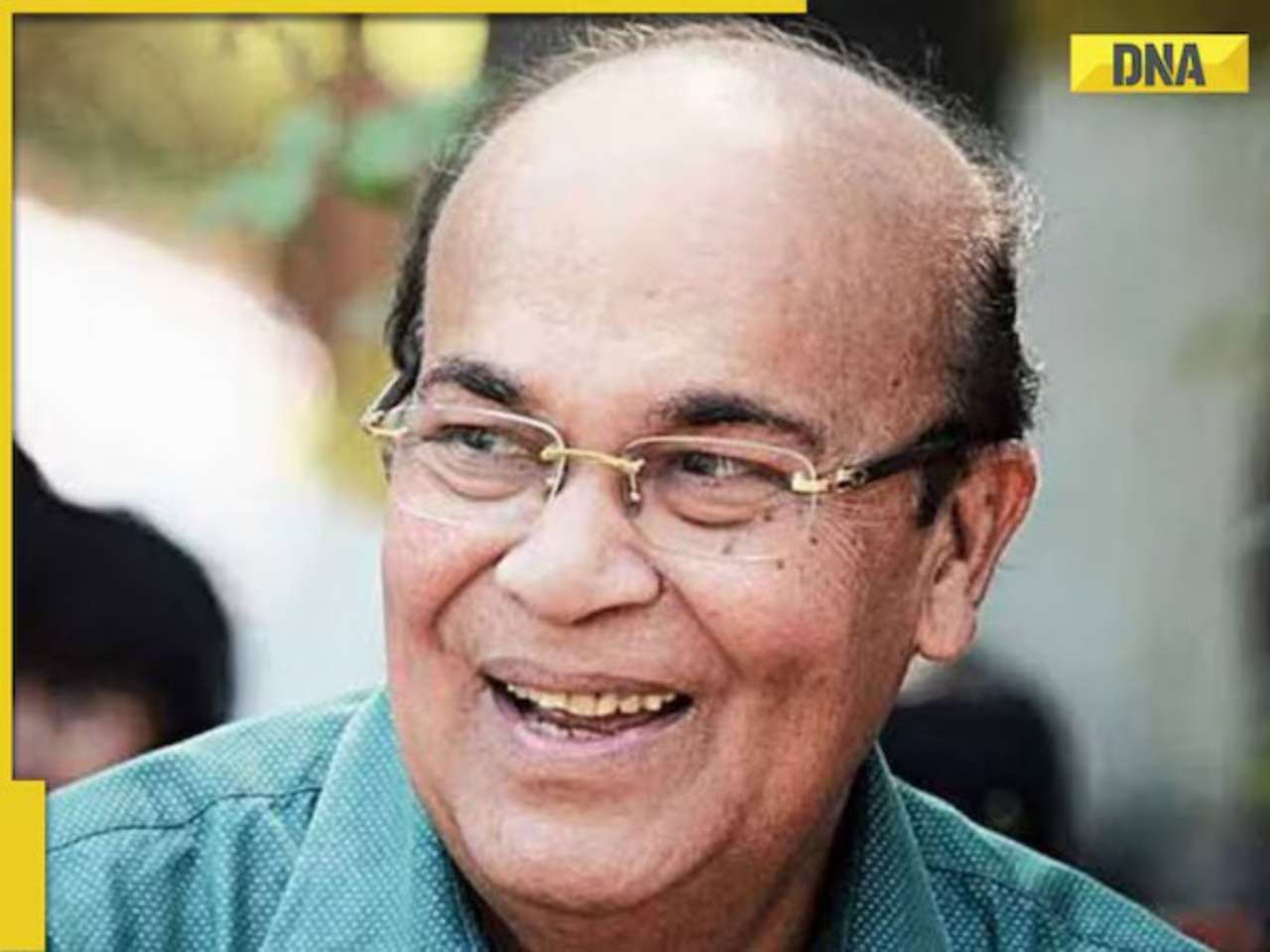



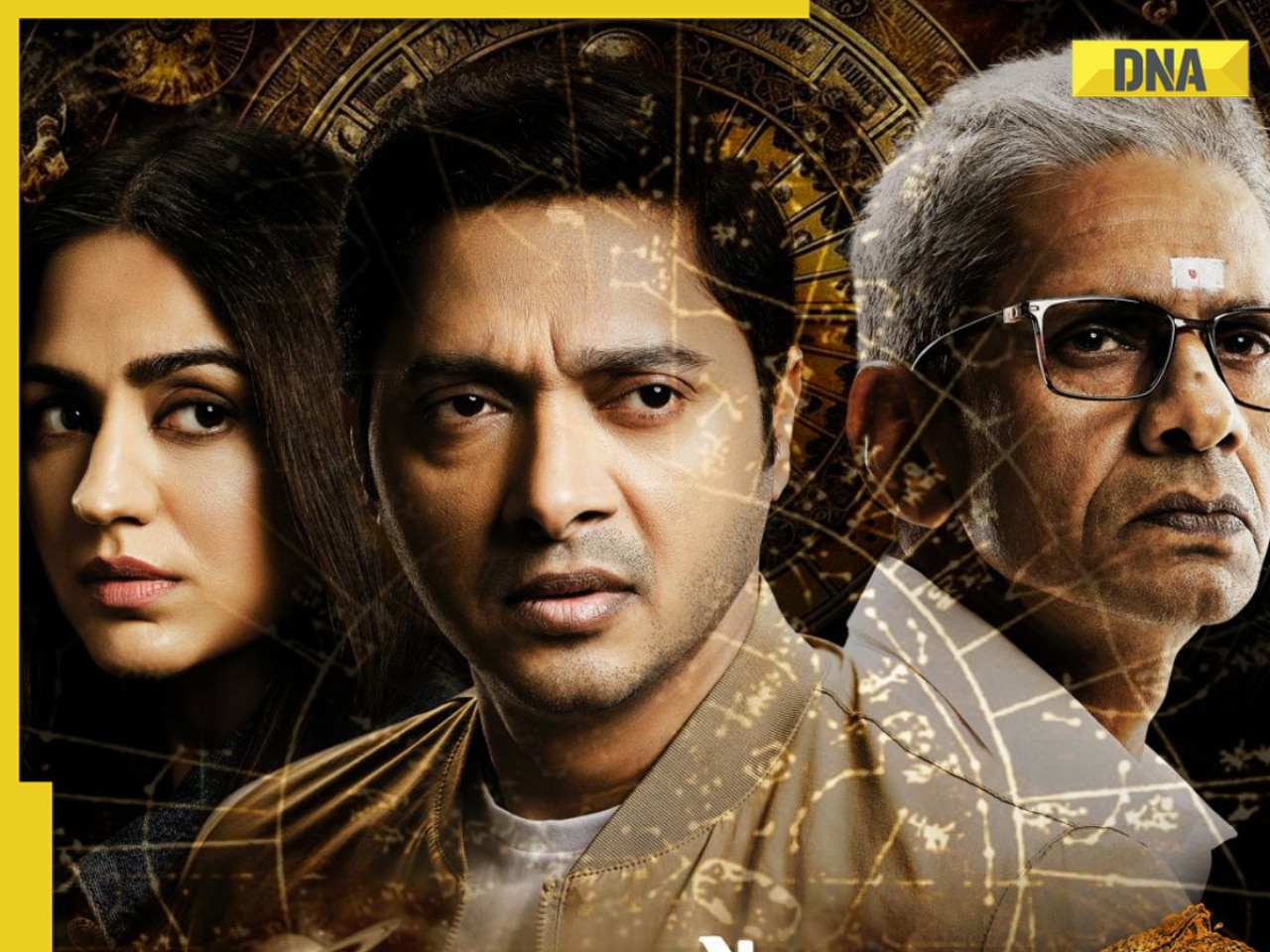







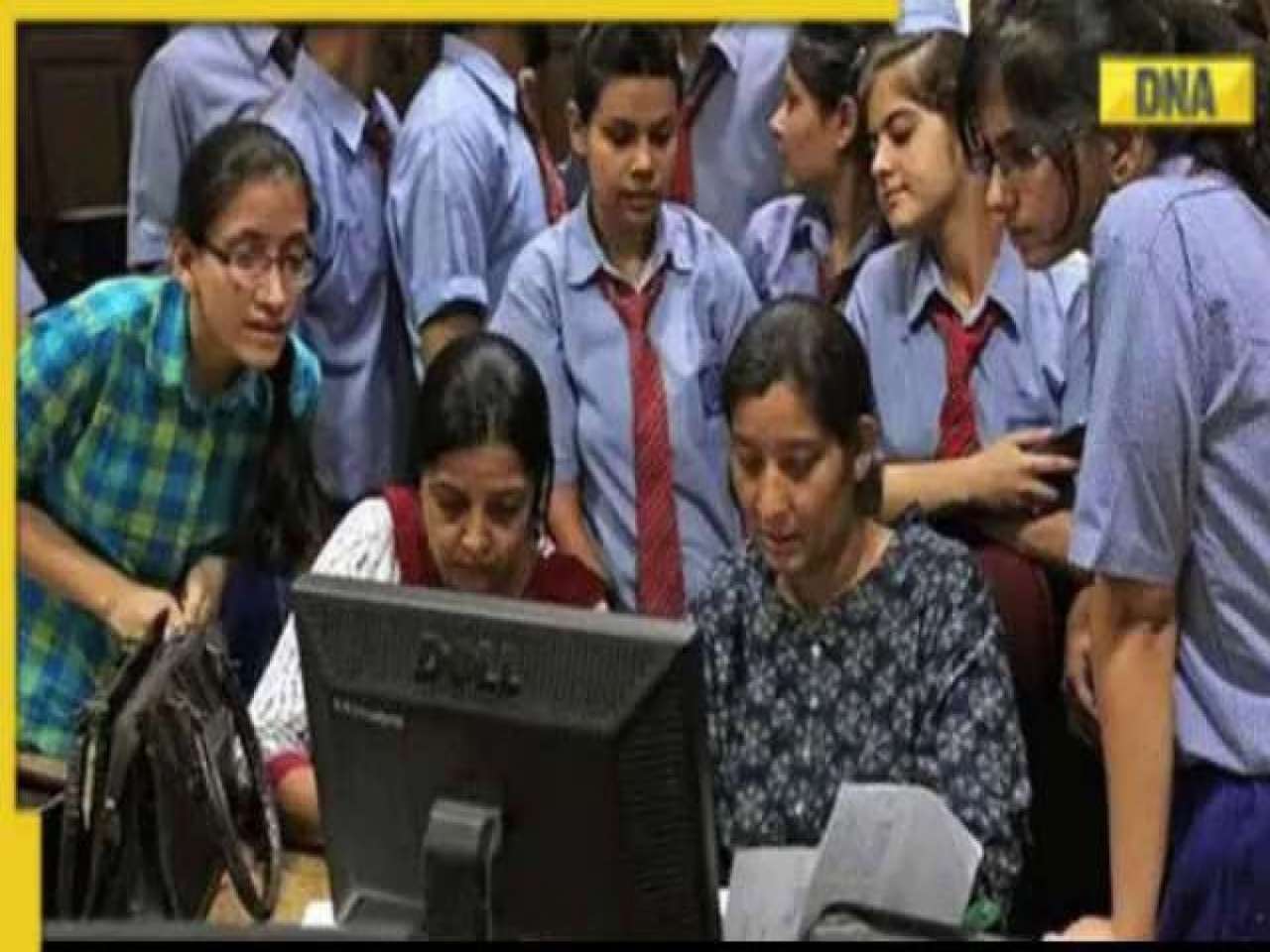
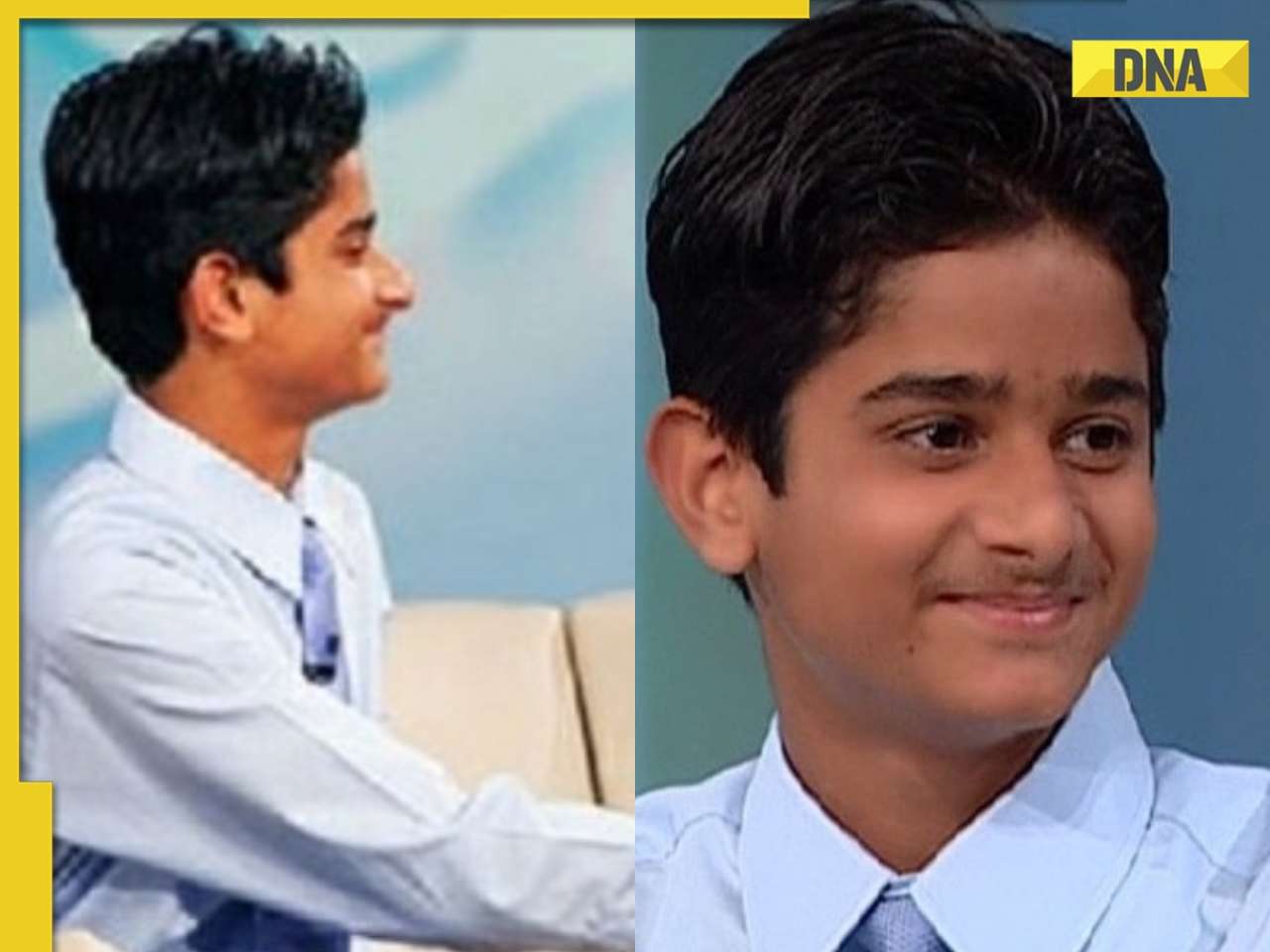
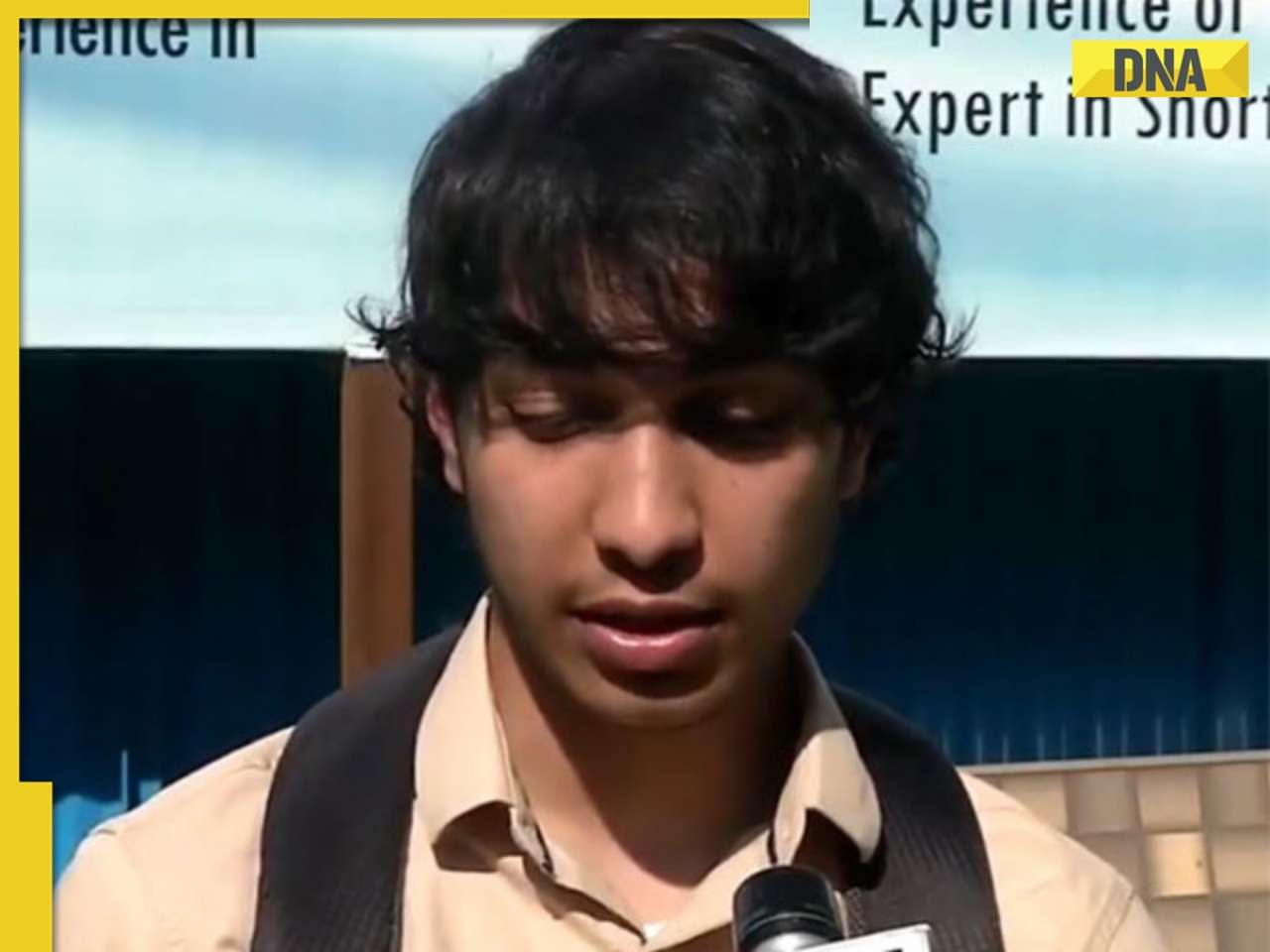















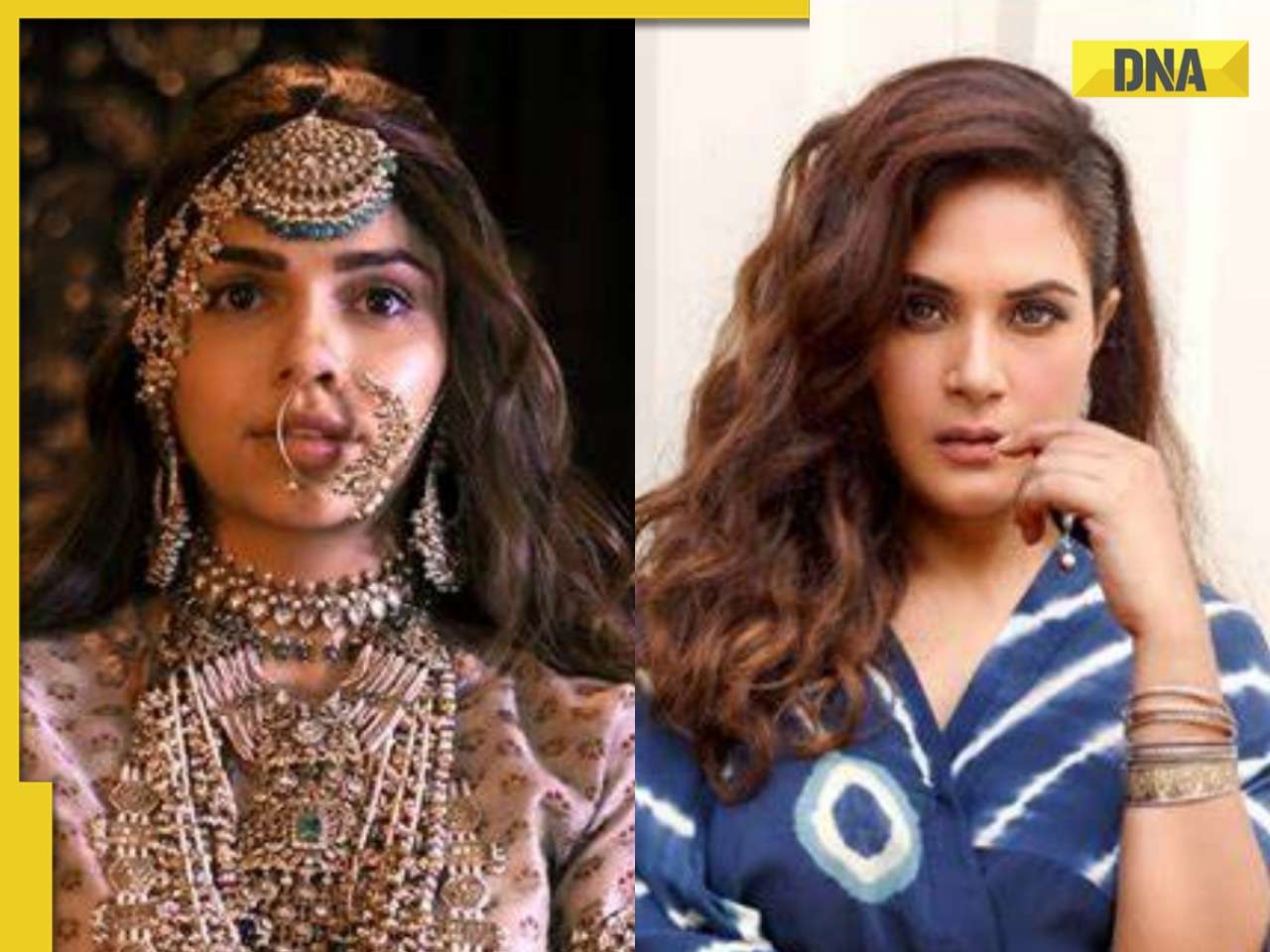
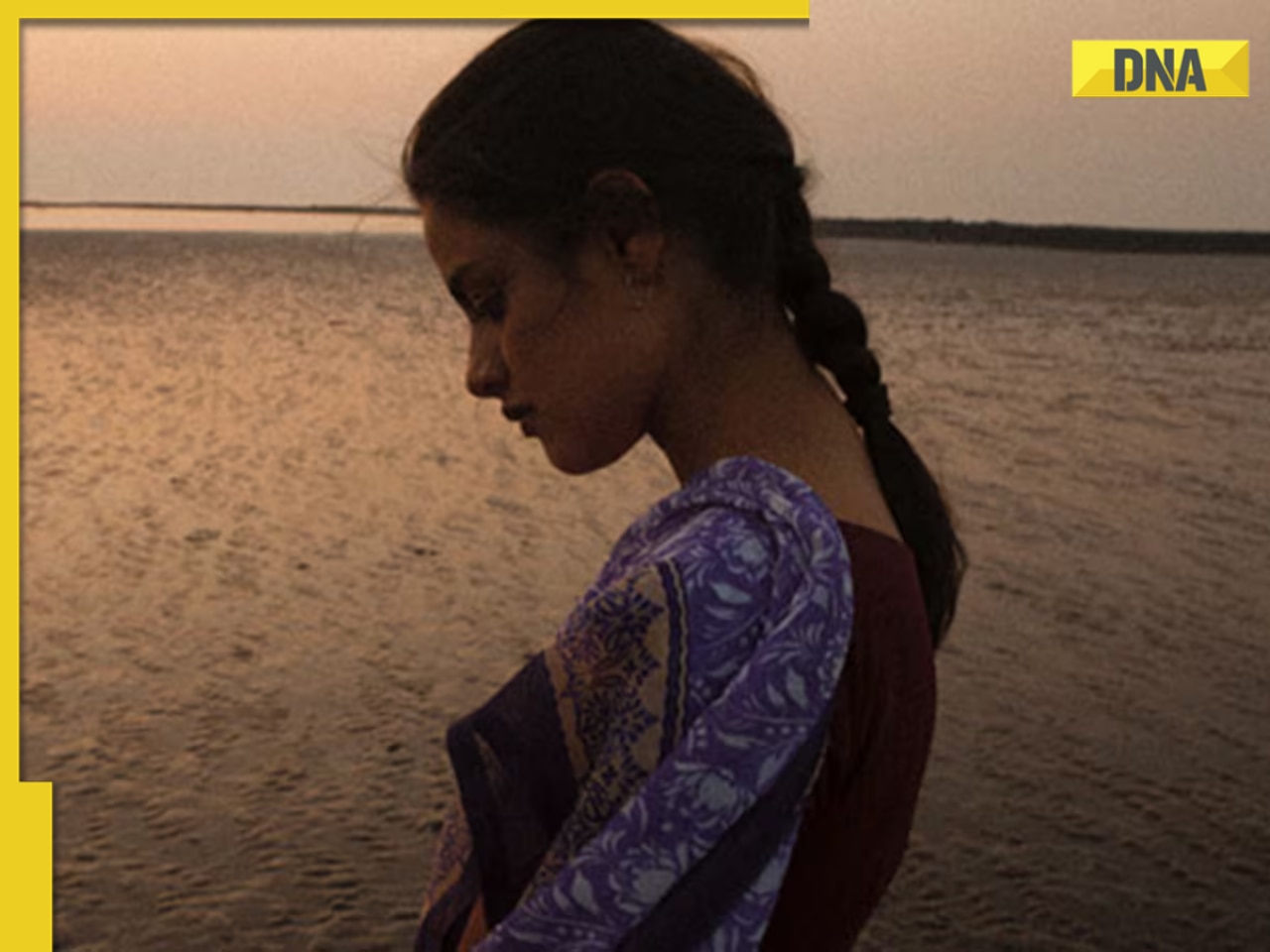



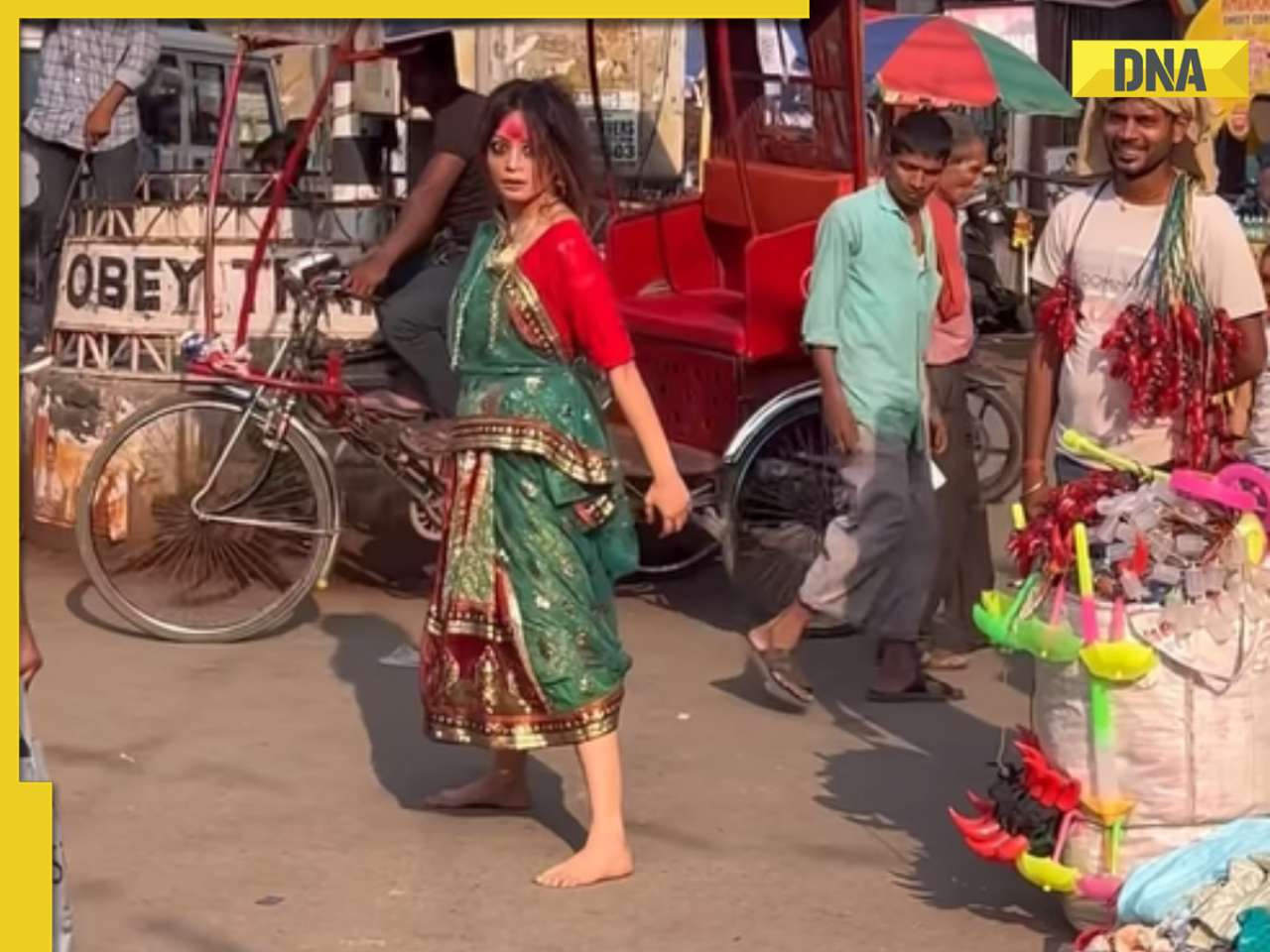







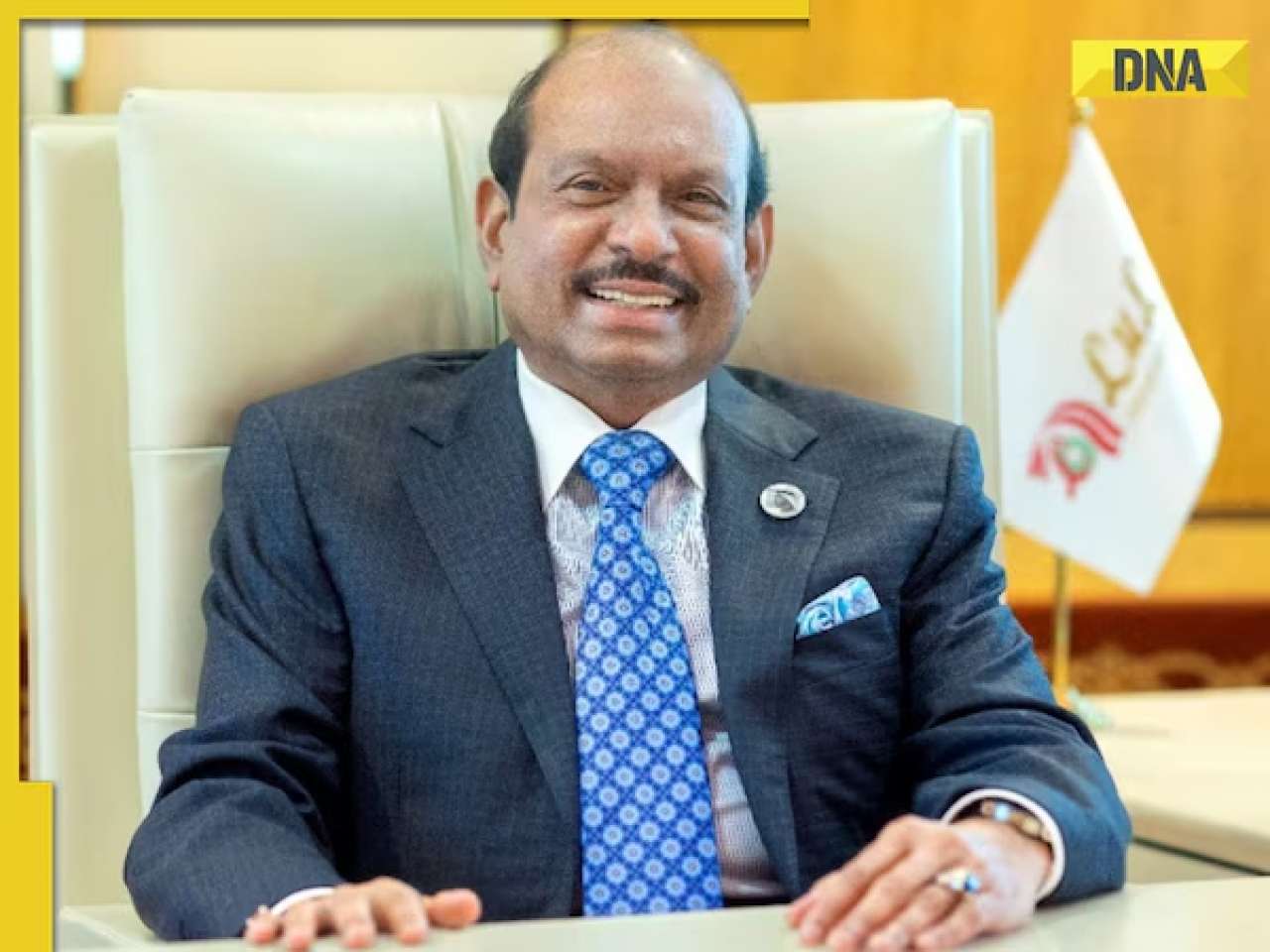

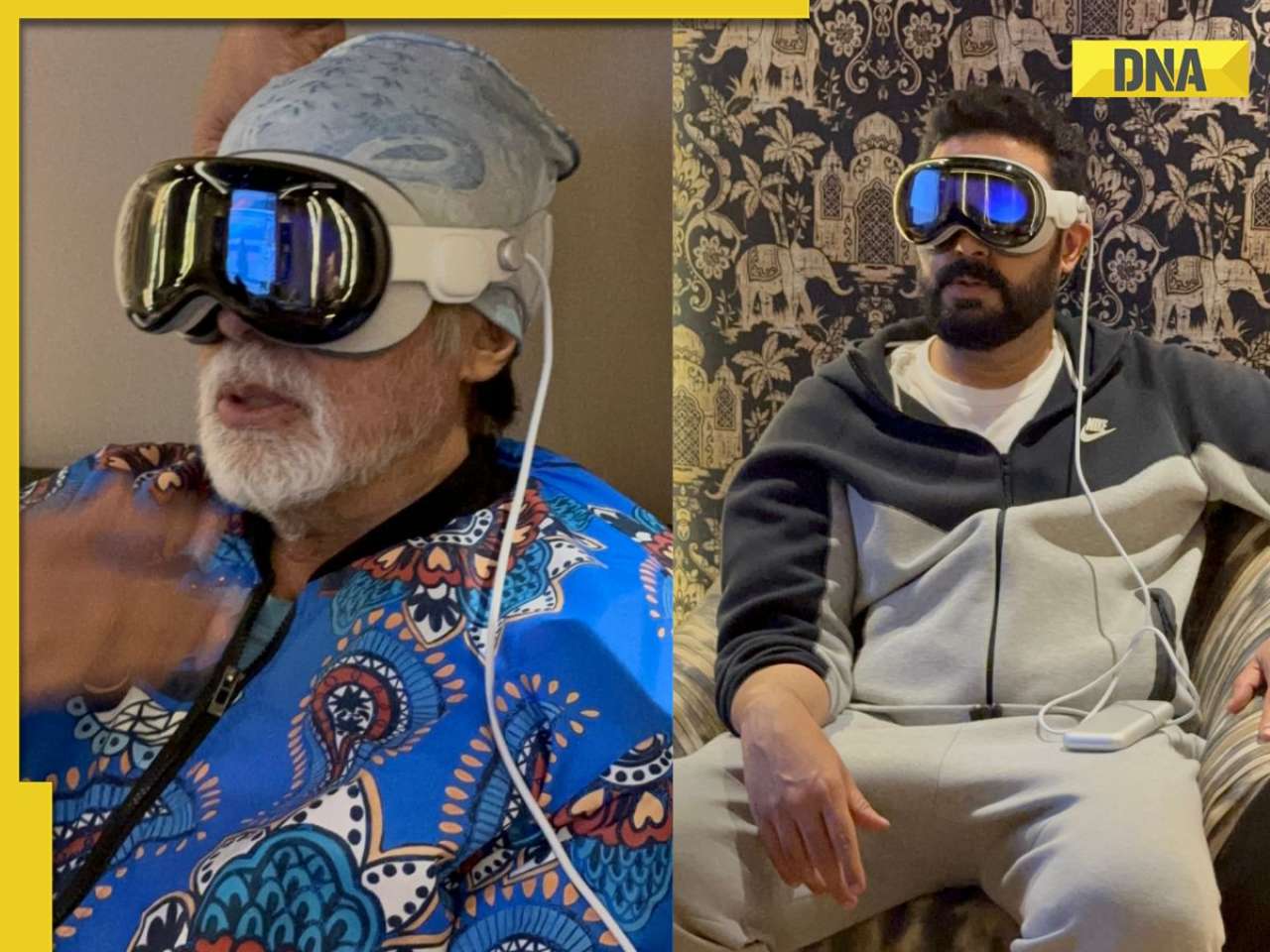











)
)
)
)
)
)